Why You Should Stop Avoiding Fruit (and 10+ Ways to Improve Your Intake)
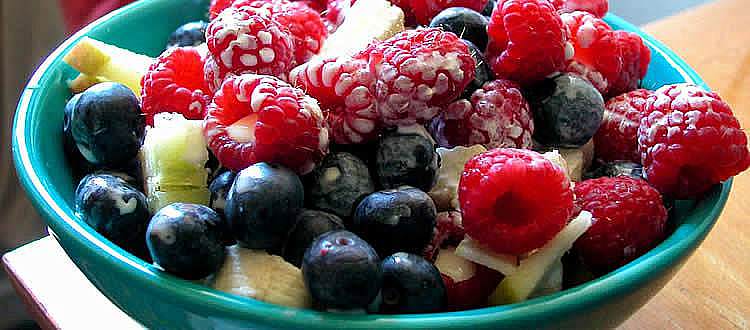
Fruit has gotten a bad rap lately and many popular diet plans ban most of it due to its high sugar content.
And, many of my coaching clients are afraid to eat fruit because they are convinced it will make them fat.
Weight loss or weight gain is determined by energy balance and not by eating this food or not eating that. This is why I’m such a strong advocate for a macros approach to dieting.
I disagree with the notion that fruit is bad as there are so many other great ways to save calories and highly nutritious foods like fruit doesn’t have to be one of them.
Recently I went home to visit my parents and I was a bit concerned that there wasn’t a single piece of fresh fruit in their house.
Why are people so afraid to eat and cook with fruit?
Fruit or Candy Bar?
Many diet experts preach that the sugar in fruit is no different than the sugar in foods such as candy bars or sodas. I highly disagree.
If you aren’t sure, try a little experiment for me…..
For a snack one afternoon have a large apple (24 grams of sugar). After you eat it, be mindful of how it made you feel, perhaps jot down a few notes like…
- How did I feel immediately after I ate it?
- Did my heart rate change after eating it?
- How long did it keep me satisfied?
- Did I experience an energy crash later?
The next day eat a Snickers bar or equivalent (27 grams of sugar). Again, mindfully evaluate how it made you feel.
Now compare the two. Did they both have the same effect on your body and mood?
For me, the differences are quite noticeable between the two and I’ll let you guess which one’s the winner.
I believe that vegetables should be more dominant in the diet than fruit, but fruit should definitely have its place.
Scientific Reasons to Eat More Fruit
Fruits are high in sugar (making them delicious) but are also packed with a multitude of micro-nutrients.
Food scientists still aren’t aware of all the many health benefits they could be responsible for but here are just a few studies showing the importance of eating fruit.
- Fruit and vegetables, particularly berries, may reduce risk of Type 2 Diabetes in men.1
- A higher consumption of fruit and vegetables is associated with a lower risk of all-cause mortality.2
- Fruit consumption is inversely associated with many types of cancer. (More consumption reduces the likelihood of cancer.)3
- Higher total consumption of fruits and vegetables was inversely associated with the risk of heart failure. 4
We can’t let the sugar content of fruit keep us from experiencing all of the health benefits and flavor it offers us.
Cooking With and Eating More Fruit
Fruit for Snacking
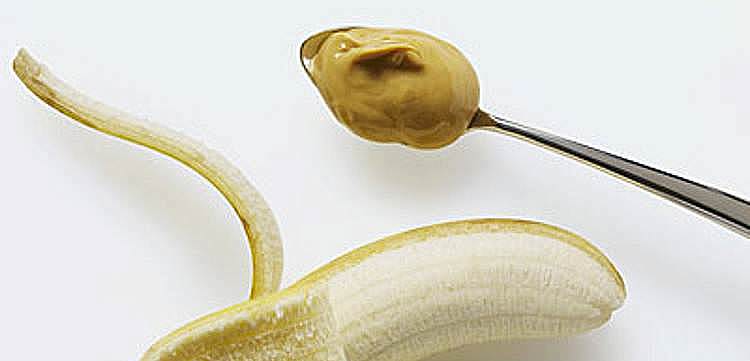
Fruit makes an excellent and satisfying snack. I generally eat just fruit and nuts as my daily snacks and often these snacks replace my lunch because of my afternoon schedule. My afternoon often looks like this:
- Banana and peanut butter before my noon workout.
- A large apple when I get back.
- 2 hours later some black grapes, a peach, or some dried figs, etc.
Switch it up with whichever fruits are in season, but a banana is a daily ritual for me.
Dried Fruit? I advise limiting dried fruit as fresh is better. Since all the water is removed, the sugar is more concentrated and it’s a lot easier to eat more than you should. A lot of dried fruits also have added sugars, oils, and sulfites.
Dried figs and dried tart cherries are usually preservative-free and lower in sugar than other dried fruits.
Fruit Smoothies
I also love fruit smoothies and there are a lot of fun combinations. Here are some of my favorites.
- Frozen banana, natural salted peanut butter, almond milk and vanilla. ( like a peanut butter milkshake! )
- Wild blueberry, raw almonds, kale, vanilla, water, and a packet of stevia powder.
- Strawberry, banana, and kefir or Greek yogurt.
- Pineapple, coconut milk, avocado.
Smoothies are better than juicing since all of the fruit fiber gets consumed, which is essential for good health.
Fruit in Savory Dishes
Fruit can add a great flavor combination in savory recipes. Savory and sweet is in, so add fruit in creative ways.
- Tajin grilled chicken and mango makes a great taco filling.
- Grapes, green apples, and pears are great in green leafy salads, with some walnuts, feta, and balsamic dressing.
- Add pineapple or mango to spicy stir-frys and curries for a nice sweet, spicy, savory combination.
- Cajon grilled fish goes great with a mango salsa.
- Lemon juice, lime juice, and orange juice make a great acid-base for meat or vegetable marinades.
- Grilled kabobs with seasoned chicken, pineapple and/or seedless grapes alternating.
There are so many possibilities and great recipes abound on Pinterest.
Fruit as Dessert
Fruit can be a satisfying, but a less caloric, delicious dessert.
- Strawberries dipped in 85% dark chocolate.
- Fruit salad: Mix sweeter fruit with tart fruit for a good balance.
- Melon wedges
- Sorbets: Simply freeze fruit of your choice and then put it in a blender with a little water.
- Fruit parfaits: sliced fruit, plain Greek yogurt, and a little vanilla.
At one time, I bought into the notion that fruit should be limited, but when I switched back to eating fruit at will, I saw no difference in my body composition. I actually enjoy healthy food more when fruit is an important part of the routine.
The biggest calorie saves come from reducing the amount of refined starches/ sugars we eat in pastas, breads, white potatoes, cereals, snacks, beverages, etc.
Don’t be afraid to eat and cook with fruit as part of your journey to a healthy eating lifestyle.
- Scientific References:
- Mursu, J., Virtanen, J. K., Tuomainen, T. P., Nurmi, T., & Voutilainen, S. (2014). Intake of fruit, berries, and vegetables and risk of type 2 diabetes in Finnish men: the Kuopio Ischaemic Heart Disease Risk Factor Study. The American journal of clinical nutrition, 99(2), 328-333. Study link
- Wang, X., Ouyang, Y., Liu, J., Zhu, M., Zhao, G., Bao, W., & Hu, F. B. (2014). Fruit and vegetable consumption and mortality from all causes, cardiovascular disease, and cancer: systematic review and dose-response meta-analysis of prospective cohort studies. bmj, 349, g4490. Study link
- Bradbury, K. E., Appleby, P. N., & Key, T. J. (2014). Fruit, vegetable, and fiber intake in relation to cancer risk: findings from the European Prospective Investigation into Cancer and Nutrition (EPIC). The American journal of clinical nutrition, 100(Supplement 1), 394S-398S. Study link
- Crowe, F. L., Roddam, A. W., Key, T. J., Appleby, P. N., Overvad, K., Jakobsen, M. U., … & Riboli, E. (2011). Fruit and vegetable intake and mortality from ischaemic heart disease: results from the European Prospective Investigation into Cancer and Nutrition (EPIC)-Heart study. European Heart Journal, 32(10), 1235-1243. Study link
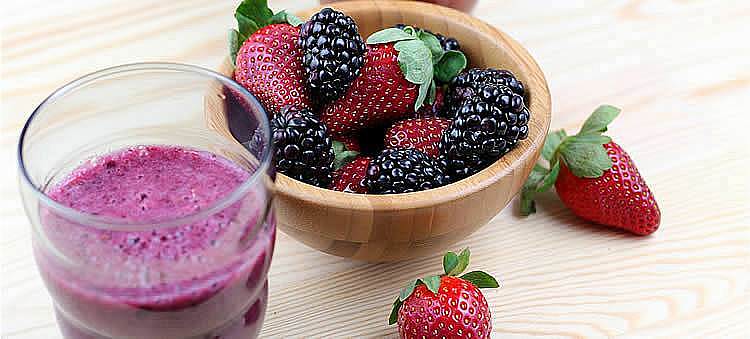
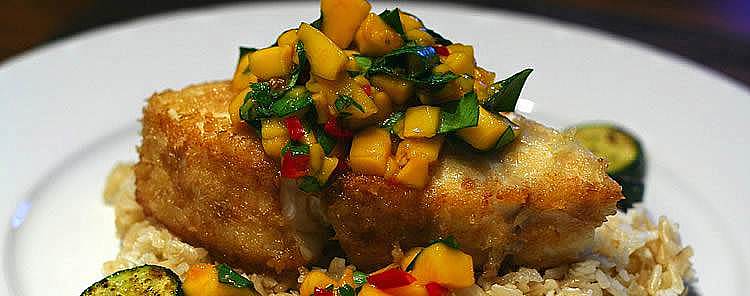
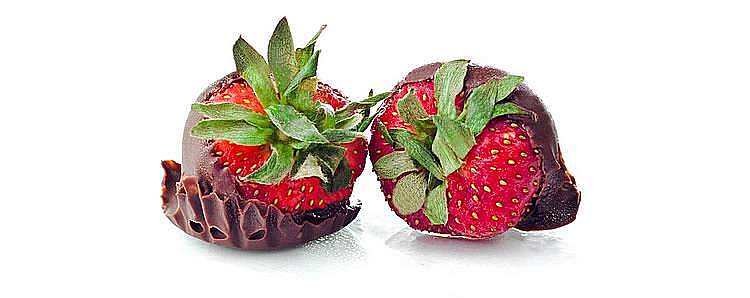

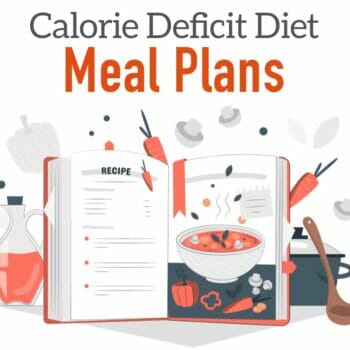 Calorie Deficit Meal Planner
Calorie Deficit Meal Planner Macro Friendly Family Dinners
Macro Friendly Family Dinners Fresh and Healthy Caprese Salad Recipe
Fresh and Healthy Caprese Salad Recipe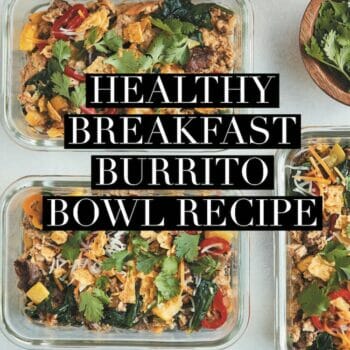 Breakfast Burrito Bowl Recipe: Meal Prep Style
Breakfast Burrito Bowl Recipe: Meal Prep Style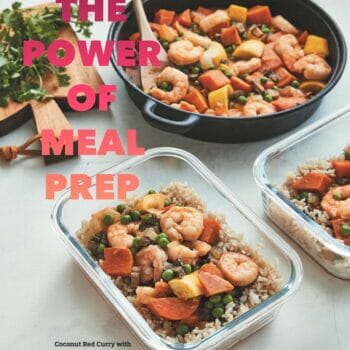 Use Meal Prep to Nail Your Weight Loss and Fitness Goals
Use Meal Prep to Nail Your Weight Loss and Fitness Goals